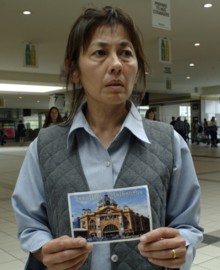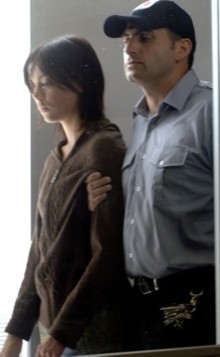
CHOCOLATE and SLAVERY
There are about 600,000 cocoa farms in Cote d'Ivoire (Child Labor Coalition). Estimates of the number of children forced to work as slaves on these farms are as high as 15,000 (Save the Children Canada). In addition to the very illegality of trafficking and hiring children workers, the implicated cocoa farmers subject the children to inhuman living conditions. Besides overworking them, the farmers do not pay the children nor feed them properly-often times they are allowed to eat corn paste as their only meal. The denigration also includes locking the children up at night to prevent escape. Although it is only one of many occurrences of bonded labor, Aly Diabate's experience on a cocoa farm still illustrates how this torture strips away the dignity of children.
Aly Diabate, who is from Mali, was eleven years old when he was lured in Mali by a slave trader to go work on an Ivorian farm. The locateur told him that not only would he receive a bicycle, but he could also help his parents with the $150 he would earn. However life on the cocoa farm of "Le Gros" (or "Big Man") was nothing like Aly had imagined. He and the other workers had to work from six in the morning to about 6:30 at night on the cocoa fields. Since Aly was only about four feet tall, the bags of cocoa beans were taller than him. To be able to carry and transport the bags, other people would have to place the bags onto his head for him. Because the bags were so heavy, he had trouble carrying them and always fell down. The farmer would beat him until he stood back up and lifted the bag again. Aly was beaten the most because the farmer accused him of never working hard enough. The little boy still has the scars left from the bike chains and cocoa tree branches that Le Gros used. He and the other slaves were not fed well either. They had to subsist on a few burnt bananas.
Yet when nightfall came, Aly's torture did not end. He and eighteen other slave workers had to stay in their one room that measured 24-by-20 feet. The boys all slept on a wooden plank. There was but one small hole just big enough to let in some air. Aly and the others had to urinate in a can, because once they went into the room, they were not allowed to leave. To ensure this, Le Gros would lock the room.
Despite the horrendous conditions that he was living in, Aly was too afraid to escape. He had seen others who had attempted escapes, only to be brutally beaten after they got caught. However one day, a boy from the farm successfully escaped and reported Le Gros to the authorities. They arrested the farmer and sent the boys back home. The police made Le Gros pay Aly $180 for the eighteen months he had worked. Now Aly is back with his parents in Mali, but the scars, both physical and psychological still remain. He admitted that after he first came back from the farm, he had nightmares about the beatings every night. Aly was fortunate that the authorities were alerted about the slavery that was present at Le Gros' farm, but many other children are not as lucky and are still being subjected to the beatings and overall dehumanization on these cocoa farms.









1 comment:
Excellent writing, thanks for sharing
escort
escort service
Post a Comment